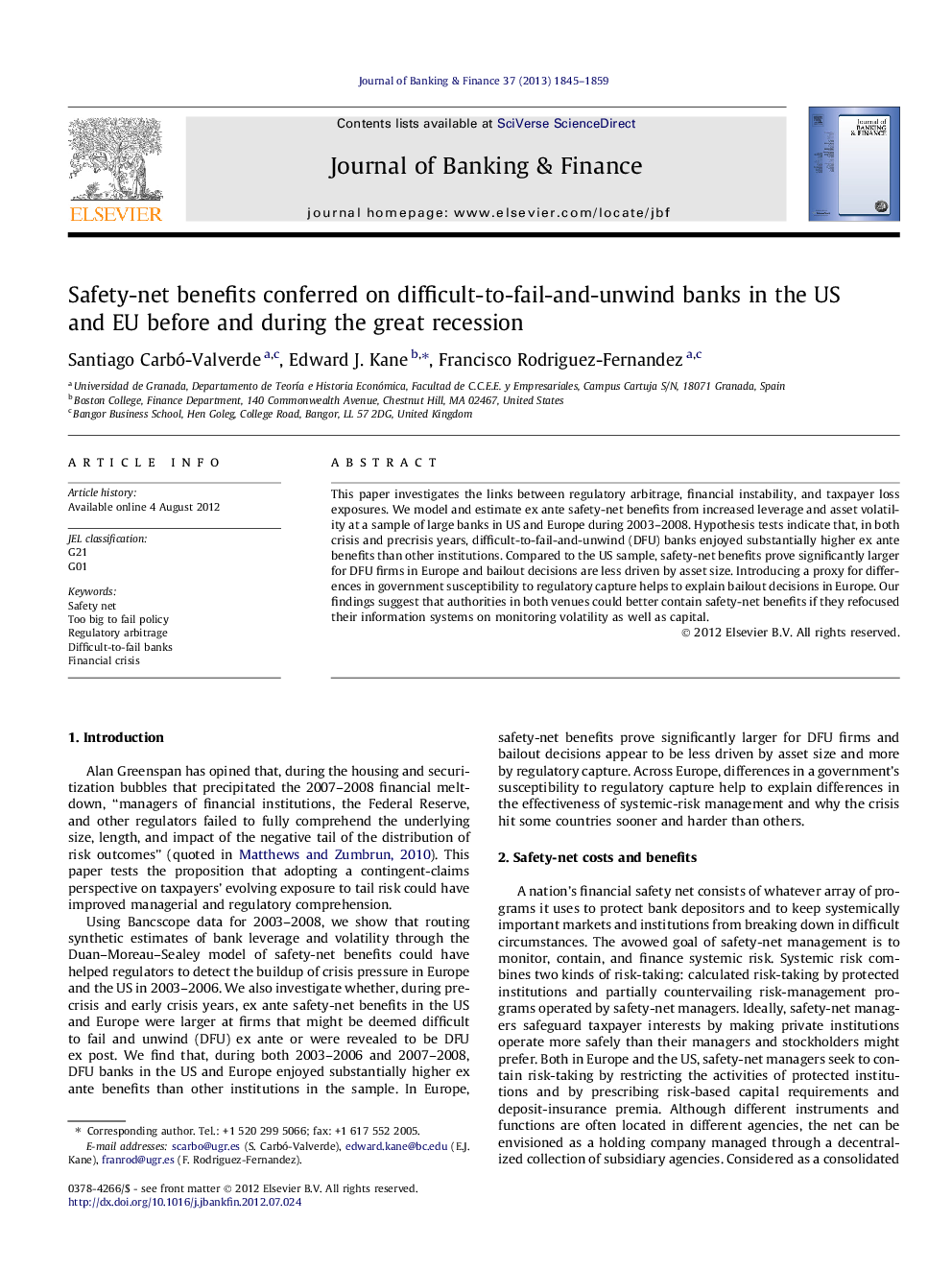| کد مقاله | کد نشریه | سال انتشار | مقاله انگلیسی | نسخه تمام متن |
|---|---|---|---|---|
| 5089411 | 1375592 | 2013 | 15 صفحه PDF | دانلود رایگان |
This paper investigates the links between regulatory arbitrage, financial instability, and taxpayer loss exposures. We model and estimate ex ante safety-net benefits from increased leverage and asset volatility at a sample of large banks in US and Europe during 2003-2008. Hypothesis tests indicate that, in both crisis and precrisis years, difficult-to-fail-and-unwind (DFU) banks enjoyed substantially higher ex ante benefits than other institutions. Compared to the US sample, safety-net benefits prove significantly larger for DFU firms in Europe and bailout decisions are less driven by asset size. Introducing a proxy for differences in government susceptibility to regulatory capture helps to explain bailout decisions in Europe. Our findings suggest that authorities in both venues could better contain safety-net benefits if they refocused their information systems on monitoring volatility as well as capital.
⺠We model safety-net benefits as credit enhancements from expected bailouts. ⺠We value taxpayer puts for US and European banks in crisis and precrisis years. ⺠We compare the value of the puts across time, countries and bank size classes. ⺠We show that method's predictive power could help supervisors to lessen systemic risk. ⺠Weekly reporting of bank balance sheets would enhance our method's usefulness.
Journal: Journal of Banking & Finance - Volume 37, Issue 6, June 2013, Pages 1845-1859
